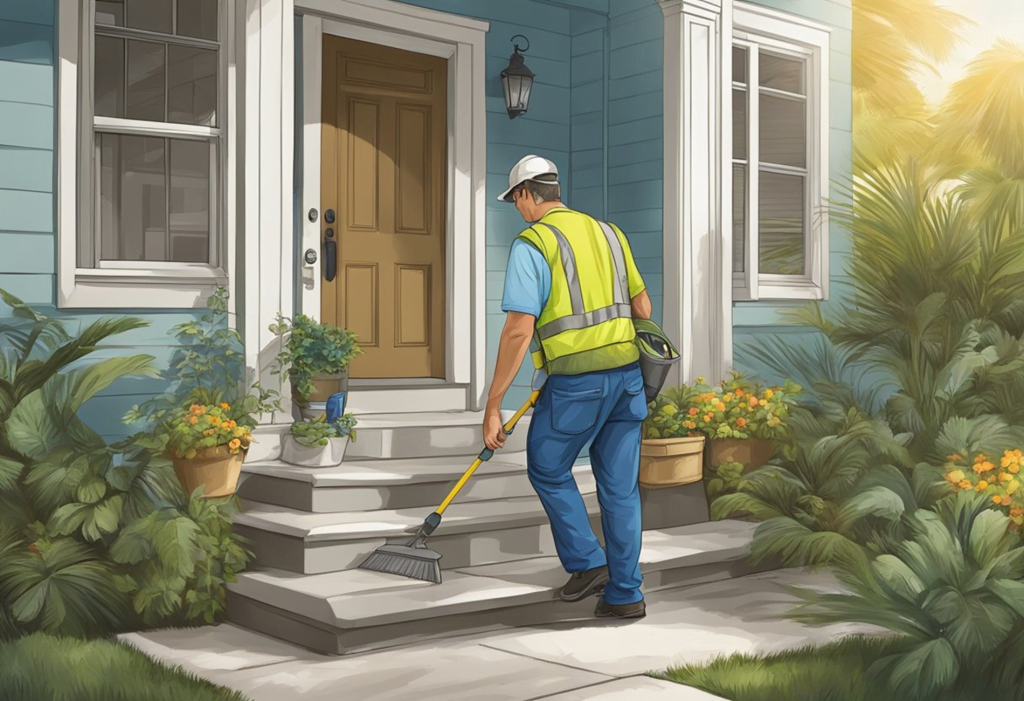Last Updated on March 18, 2024 by Kelvin Nielsen
If you’re a tenant in Florida, you may be wondering whether your landlord can enter your rental unit without giving you prior notice. After all, you have a right to privacy and the quiet enjoyment of your home.
However, your landlord also has a right to maintain the property and make necessary repairs. So, can maintenance come in without notice in Florida?

The answer is not a simple yes or no. Florida law does not specifically require landlords to give tenants notice before entering their rental units for maintenance or repairs. However, landlords are required to provide reasonable notice before entering a rental unit for any other reason, such as showing the unit to prospective tenants or buyers.
This notice must be given in writing and must be reasonable under the circumstances.
Related Posts:
- Who is Responsible for Appliances in a Rental Property in Florida?
- Can a Landlord Raise Rent Without Notice in Florida?
- How Often Must Landlords Repair Damaged Window Screens in Florida?
Understanding Florida’s Entry Laws
As a Florida tenant, it’s important to know your legal rights when it comes to your landlord’s entry into your rental unit. Florida law provides specific guidelines for when and how a landlord can enter your home, and failing to follow these rules can result in legal consequences for the landlord.
Notice Requirements for Landlords
Florida law requires landlords to provide tenants with reasonable notice before entering their rental unit. This notice must be in writing and must be provided at least 12 hours before the landlord’s intended entry time. The notice must also state the reason for the entry and the approximate date and time of entry.
Emergency Access Without Notice
In certain emergency situations, such as a gas leak or fire, a landlord may enter a tenant’s rental unit without providing prior notice. However, the landlord must still make a reasonable effort to notify the tenant before entering, and they must only enter the unit to address the emergency situation.
Tenant Rights and Privacy
As a tenant, you have a legal right to privacy in your rental unit. Your landlord cannot enter your home without your permission or without providing proper notice, except in emergency situations. If your landlord violates your privacy rights by entering your unit without proper notice or permission, you may have legal recourse.
Remember, your landlord can only enter your rental unit between the hours of 7:30 a.m. and 8:00 p.m., unless you give them permission to enter outside of those hours. It’s important to know your rights as a tenant and to communicate with your landlord to ensure that they are following Florida’s entry laws.
Legal Remedies and Tenant Protections

Withholding Rent and Repair and Deduct
Under Florida law, tenants have the right to withhold rent or repair and deduct if their landlord fails to make necessary repairs. However, this should only be done after giving written notice to the landlord and allowing a reasonable amount of time for the repairs to be made.
It is important to note that the amount withheld or deducted should not exceed the cost of the necessary repairs.
Landlord Retaliation and Tenant Recourse
Florida statutes prohibit landlords from retaliating against tenants who exercise their legal rights, such as withholding rent or repair and deduct. If a landlord does retaliate, the tenant may be entitled to recover damages, including court costs and attorney fees.
It is important for tenants to document any violations by the landlord and seek legal assistance if necessary.
Seeking Legal Assistance
If you are a tenant facing issues with maintenance and repairs, it may be in your best interest to seek legal assistance. A legal guide can help you understand your rights and responsibilities under Florida law, including habitability requirements and advance notice for maintenance and repairs.
With the help of an attorney, you can take appropriate legal action to protect your security and well-being as a tenant.
Sources: FL Statutes Chapter 83 Part II, Landlord-Tenant Handbook

Hi, I’m Kelvin Nielsen, an experienced landlord and accomplished real estate lawyer. My focus is on answering your questions about renting in the hopes of making your life as a renter or a landlord a bit easier.






